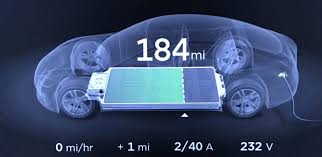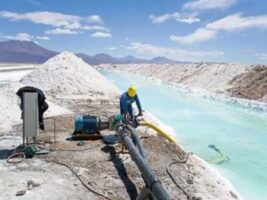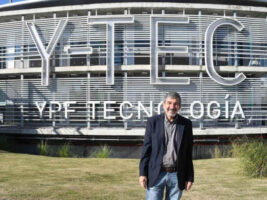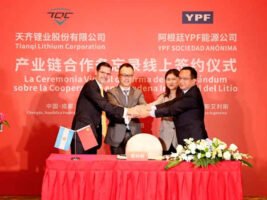AUTOR: Fred Lambert
Tesla has applied for a patent on new electrolyte solutions for a new lithium metal or anode-free battery cell.
Over the last year, we have been reporting on Tesla’s battery research partner, Jeff Dahn and his team at Dalhousie University, unveiling the impressive results of tests on a new battery cell that could last over 1 million miles in an electric vehicle. The team has been working for Tesla to improve energy density and longevity of battery cells while reducing costs.
But Dahn, who is a pioneer of Li-Ion battery technology, and his team have also been working on next-generation battery technology — beyond improving on current technology.
Last year, we reported on the team patenting an “anode-free lithium-metal cell” for Tesla that they suggested could be the next big thing in battery tech instead of solid-state batteries.
They are still working on the new cells as evidenced by a new patent application Dahn’s team for Tesla’s Canadian research group: “Electrolytes with Lithium Difluoro(oxalato)borate and Lithium Tetrafluoroborate Salts for Lithium-metal and Anode-Free Battery Cells.”
Tesla writes about the current problems with lithium-metal batteries in the patent application:
Rechargeable batteries are an integral component of energy-storage systems for electric vehicles and for grid storage (for example, for backup power during a power outage, as part of a microgrid and so forth.). Some such rechargeable battery systems include lithium metal and anode-free lithium batteries. Lithium metal and anode-free lithium batteries have certain advantages over traditional lithium ion batteries, as they are more energy dense. Anode-free cells are also less expensive and easier to assemble due to their lack of anode coating. However, challenges with lithium metal and anode-free lithium batteries have prevented their wide spread adoption. Improving certain characteristics of lithium metal and anode-free battery systems will allow for more widespread use of such systems. For instance, developing electrolyte compositions that allow for commercially acceptable cycling performance of lithium metal and anode-free lithium batteries is critical to gaining adoption of such battery systems. Until the present disclosure, the general consensus in the industry is that an electrolyte with lithium difluoro(oxalato)borate (“LiDFOB”) salt alone best increases the capacity retention of lithium metal and anode-free lithium cells.
In short, it offers great advantages when it comes to energy density and costs, but it needs improvements when it comes to longevity.
Dahn’s team claims that its new electrolyte would help improve just that:
Provided are electrolyte solutions including both lithium difluoro(oxalato)borate and lithium tetrafluoroborate and a solvent component for use in lithium metal or anode-free rechargeable battery cell and methods of using the electrolyte solutions to improve capacity retention of the battery cells. Also provided are rechargeable battery systems including a lithium metal or anode-free battery cell and electrolyte solutions including both lithium difluoro(oxalato)borate and lithium tetrafluoroborate and a solvent component. The systems described herein exhibit improved capacity retention.
In the patent application, they do release test results showing improvements in battery capacity retention, but they don’t seem to have pushed the cells beyond 50 cycles for now. They would need to put the batteries to many more cycles in order to make them viable for commercialization.
As we reported earlier this year, the Tesla researchers published work on a hybrid lithium-metal battery as an all-electric car range extender.
It’s important to note that Tesla, like most other companies, will sometimes patent technologies that won’t ever actually go into production.
More about Tesla’s battery plans is expected to be announced on September 15 during its “Battery Day.”
FUENTE: https://electrek.co/2020/07/09/tesla-patents-lithium-metal-or-anode-free-battery/




